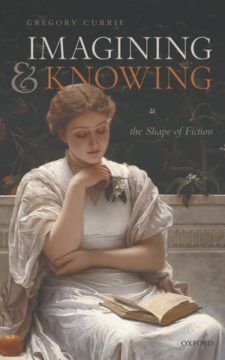Peter Lamarque at Notre Dame Philosophical Reviews:
 Few would dispute that, all things considered, some exposure to works of imaginative literature (novels, plays, poems) as part of a rounded education is better than no such exposure. Beyond that, disagreements are rife. Culture wars loom, with anxieties over curriculum choice, gender and racial bias, elitism, contested pedagogic methods, and a disconcerting vagueness about aims sought.
Few would dispute that, all things considered, some exposure to works of imaginative literature (novels, plays, poems) as part of a rounded education is better than no such exposure. Beyond that, disagreements are rife. Culture wars loom, with anxieties over curriculum choice, gender and racial bias, elitism, contested pedagogic methods, and a disconcerting vagueness about aims sought.
In this important and polemical book, Gregory Currie sidesteps direct engagement with these heated controversies at the frontline of educational policy but nevertheless shines a penetrating, for some disturbing, light on one of the most prominent lines of defence for a humanistic, literary education, the thought that we can learn from works of fiction in substantial ways: that reading fiction can make us better people, more wise, more morally astute, more empathetic, more knowledgeable about human follies and aspirations. Currie does not deny outright that such benefits can accrue, but warns that our confidence that this is so is often misplaced and ill-grounded.
more here.
